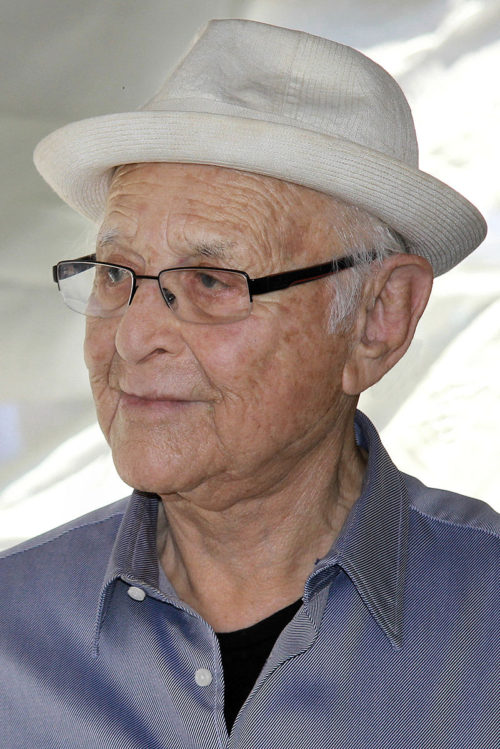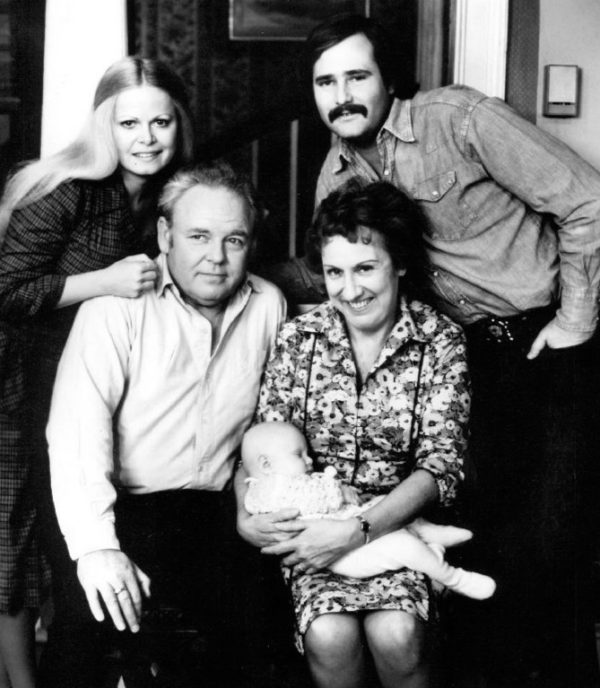Norman Lear is 93 now and can look back at an astonishing and perhaps unparallelled career in television. At one point in the 1970s, six of the 10 top shows on American TV networks had been developed by him.
He was the king of the situation comedy.
With hits like All in the Family, Maude, Good Times and The Jeffersons, Lear was virtually a legend in his own time.

Lear’s ascent to fame is the subject of Norman Lear: Just Another Version Of You, which will be screened by the Canadian International Documentary Festival in Toronto on April 30, May 1 and May 6.
The film, directed by Rachel Grady and Heidi Ewing, is a sympathetic portrait of a writer and producer whose sitcoms were watched by about 120 million Americans a week.
“We were serious people, but comedy was our business,” says Lear in a reference to his team of writers.
Lear not only cajoled laughs out of viewers, but made them think about current issues like race, class and feminism. “We were engaging in reality,” he says.
As a result, he changed the face of TV in the United States.
Although his shows were immensely popular with the masses, Lear did not always endear himself to his bosses, who were reluctant to rock the boat. So Lear had to fight with the “censors” before his scripts were finally approved.
He had to grow up quickly.
Herman Lear, his father, was imprisoned when Lear was nine years old, forcing him to become an adult long before he should have acquired that status. Since his mother appears to have played a minor role in his childhood, Lear was successively sent to live with two uncles and his grandparents.
Lear appears to have been deeply affected by the antisemitic tirades of Father Charles Coughlin, a demagogue in the mould of Henry Ford. After Japan’s attack on the American naval fleet at Pearl Harbor, Lear joined the U.S. Air Force. “I wanted to be known as a Jew who served,” he says.
During the war, Lear was a radio operator on a B-17 bomber. The film glosses over this period and is also sketchy about his postwar years, when he worked in public relations.

But once he landed in Hollywood, he was finally in his element. He wrote for The Colgate Comedy Hour, starring Jerry Lewis and Dean Martin. And he put his talents to use at The Martha Raye Show and The George Gobel Show, among other prime-time programs. With All in the Family, which started in 1971 and ran for eight seasons, Lear really hit his stride.
The film touches on his first marriage to Frances Lear, a manic depressive who inspired some of his TV characters.
For reasons which remain unclear, Lear left television to devote himself to promoting liberal ideas through People for the American Way, an organization that Moral Majority leader Jerry Falwell considered subversive.
In a stunt apparently aimed at annoying evangelical conservatives like Falwell, Lear bought one of the original copies of the Declaration of Independence, paying a cool $8 million for the privilege of owning it.
Lear’s second marriage, to a much younger woman, rounds off the film. “My dad has been a senior citizen since I was born,” says one of his sons with a twinkle in his eye. Lear couldn’t be happier. “My family,” he asserts, “is my greatest joy in life.”